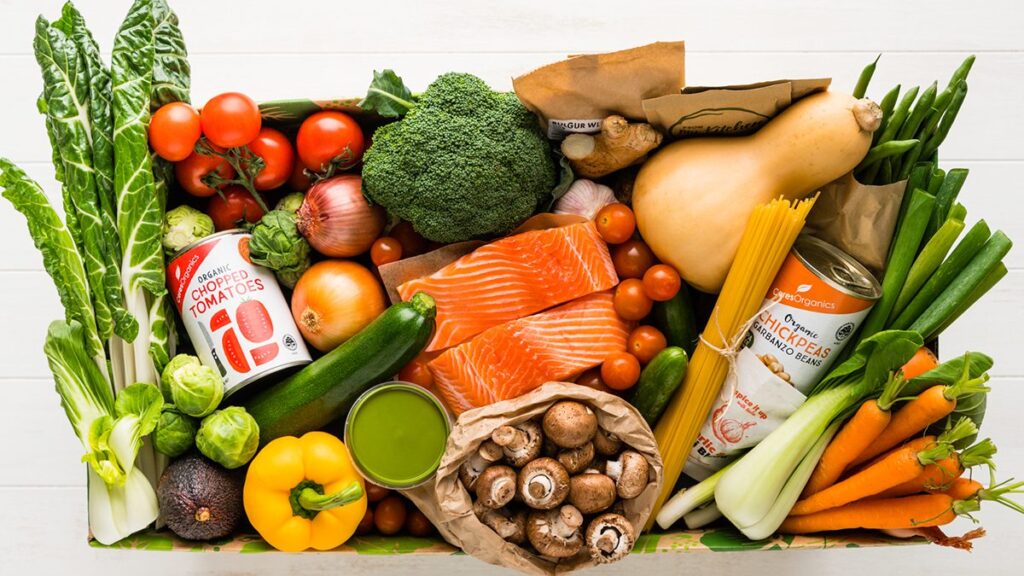Boost Your Immunity This Winter: Essential Vitamins and Nutrients to Keep You Healthy and Strong!

As winter come close, our immune systems face increased challenges from colder temperatures and seasonal disease. The stick are high for maintaining good health, making it required to support our immunity. This is where vitamins and nutrients come into play, acting as powerful integrate in our search for health. By understanding which vitamins boost our protect and contain nutrient-rich foods into our diets, we can protect our bodies in the winter season with trust and vitality. Let’s explore it effective tips to increase your immunity this winter.
Understanding Immunity, What is the Immune System?
The immune system is a complex network of cells, tissues, and organs that work together to defend our body against harmful pathogens, including viruses and bacteria.
How Immunity Functions in the Body ?
The immune system helps protect our body from harmful germs (like viruses and bacteria). It works through a network of cells, tissues, and organs, with white blood cells playing a key role. When harmful attacker are detected, immune cells attack them, and our body produces antibodies to neutralize them. Inflammation and immune cells are activated to fight infections. A strong immune system helps keep the body healthy.
Common Winter Disease Relate to Weakened Immunity
During winter, the risk of disease like colds and flu increases. A weakened immune response can make the body more allowing to these infections, highlighting the importance of maintaining a powerful immune system.

keys of Vitamins for Winter Immunity Boost
1. Vitamin A
Barrier Protector – Vitamin A is vital for maintaining the health of mucosal barriers in the body, including the respiratory and digestive tracts. These barriers serve as the first defense against pathogens. It also regulates immune responses by supporting the function of T-cells, crucial for fighting infections. During winter, Vitamin A helps prevent infections that thrive in cold, dry weather. what eat winter immune boost up Vitamin A include_
- Carrots
- Sweet potatoes
- Spinach
- kiwi and orange
- Red and orange vegetables (like butternut, pumpkin and red peppers)
- Colorful vegetables that contain beta-carotene
- Dairy products (like milk, yogurt and butter)
2. Vitamins B6
The Immune Regulator – Vitamin B6 is essential for producing white blood cells and T-cells, which are necessary for a strong immune system. It also supports protein metabolism, which is critical for immune cells that need rapid protein synthesis. B6 helps manage inflammation and aids in producing antibodies that fight off infections. A balanced intake of Vitamin B6, especially in winter, supports immunity and helps the body fight off seasonal infections.what eat winter immune boost up of Vitamin B6 include_
- Chickpeas
- Chicken breast
- Fish salmon and tuna
- Potatoes
- Bananas
- Grapes
- Singhara
3. Vitamin B12
Vital Energy Booster – Vitamin B12 is important for red blood cell production, energy metabolism, and DNA synthesis. It is also vital for producing white blood cells that help fight infections. A deficiency in Vitamin B12 can weaken the immune system and make it harder to fight off winter illnesses. Foods like meat, dairy, and fortified cereals are excellent sources of B12. For those on a plant-based diet, B12 supplements can help maintain strong immune defenses during winter.what eat winter immune boost up of Vitamin B12 include_
- Meat
- Dairy products like (milk, yogurt)
- Eggs and fish (like salmon and tuna)
- fortified cereals
- Blueberries and Strawberries
- Apple and banana
4. Vitamin C
Antioxidant Defender – Vitamin C is a powerful antioxidant that enhances immune cell function, boosts antibody production, and protects cells from oxidative damage. It is crucial during winter, especially for respiratory health. Foods high in Vitamin C, such as oranges, strawberries, bell peppers, and broccoli, should be included in the winter diet. Consuming Vitamin C-rich foods or supplements can strengthen the immune system, helping the body fight off seasonal infections and maintain overall health.what eat winter of Vitamin C include_
- Citrus fruits (oranges, lemons)
- Strawberries and kiwifruit
- whole grain
- Bell peppers
- Broccoli are rich sources of Vitamin C
- soup
- root vegetables
5. Vitamin D
Sunshine Support – Vitamin D is particularly important in winter due to reduced sunlight exposure, which can lead to deficiencies. It plays a vital role in activating immune cells and reducing the risk of respiratory infections. Low levels of Vitamin D are linked to a higher susceptibility to illnesses like colds and flu. Many people require Vitamin D supplements in winter to maintain optimal immune function and enhance resistance to infections.what eat winter of Vitamin D include_
- Oily fish Fatty fish (salmon, mackerel and sardines)
- cod liver oil, beef liver
- fortified milk, egg yolks
- Sunlight exposure and Sunlight cold
- Protect foods (milk, cereals)
- dried figs (anjeer)
- mushroom
- cheese
- orange juice
6. Vitamin E
Cellular Protector – Vitamin E acts as a powerful antioxidant that protects immune cells from oxidative stress and supports the activity of T-cells and other immune cells. It is especially beneficial in winter for reducing inflammation and strengthening the immune system against infections. Incorporating these foods into daily meals can help boost the body’s defenses, making it more resilient to winter ailments.what eat winter of Vitamin E include_
- Almonds, peanuts, Nuts (hazelnuts)
- Sunflower Seeds
- Green leafy vegetables (like spinach, broccoli and red bell pepper)
- Ginger and Garlic
- sunflower seeds
- Berry and Oats
- Oranges, Avocados and Pomegranate
- Sweet Potato

Vitally Important Nutrients for Immune Support
Vitally Important Nutrients for Immune Support include_ 1. Zinc 2. selenium 3. omega-3 fatty acids
1. Zinc is crucial for immune cell development and function, playing a significant role in the immune response to infections. It also helps in scratch healing and maintaining skin health.Sources are Meat, shellfish, legumes, seeds, and nuts are rich in zinc. A warm bowl of bean soup can be both comforting and nutrient-rich during winter.
2. Selenium acts as an antioxidant and is (essential ) vitally important for the production of immune cells, enhancing (increase) the body’s ability to fight off infections.Sources are Brazil nuts, seafood, eggs, and whole grains provide selenium. Just a few Brazil nuts can meet your daily requirement!
3. Omega-3 Fatty Acids help reduce inflammation and support immune function by promoting anti-inflammatory pathways in the body. Sources are Fatty fish (salmon, sardines), flaxseeds, chia seeds, and walnuts are great sources of omega-3 fatty acids. It look at adding fatty fish to your meals twice a week for optimal health benefits.

Tips to Boost our Immunity Lifestyle
1. Balanced Diet Importance of Variety in Foods- A diverse diet make sure a wide range of nutrients necessary for immune support it focus attention on whole foods over processed ones to maximize nutrient intake.
Meal Ideas Rich in vitally importantl Nutrients- Incorporate soups, stews, and salads filled with seasonal fruits and vegetables to bolster your intake of vitamins and minerals. Smoothies with spinach, banana, and yogurt can be both delicious and nutritious.
2. Regular Exercise Benefits for Overall Health- Regular physical activity can increase immune function and improve overall health. Exercise helps to flush bacteria out of the lungs and airways, reducing the chance of infections.
Exercises to Engage in During Winter- Consider indoor activities like yoga, home workouts, or brisk walking in warmer winter conditions. Aim for at least 150 minutes of moderate aerobic activity each week.
3. Stress Management Connection Between Stress and Immune Health- Chronic stress can weaken the immune response, making the body more unprotected to illness. Stress hormones can decrease the production of immune cells.
Techniques for Stress Reduction_ Practices such as meditation, deep breathing, and hobbies can help manage stress levels. Try dedicating time each day to aware or engaging in activities you enjoy.
4. Sufficient Sleep Importance of Rest for Immune Function- Quality sleep is vital for the body to recover and maintain immune health. During sleep, the immune system releases, proteins that help combat infection.
Tips for Improving Sleep Quality_ It start a regular sleep schedule, create a restful environment, and limit screen time before bed. Think about relaxing activities, such as reading or kind stretching, to wind down.
Winter season can lead to challenges to our immune health, but with the right vitamins and nutrients, we can strengthen our protection against common illnesses. By focus a balanced diet, incorporating key vitamins and nutrients, and adopting healthy lifestyle habits, we can increase our immune response and enjoy a healthier winter season. point to remember_ small changes can make a big difference in your overall well-being. What are your favorite ways to boost your immunity during winter season ? Share your tips or experiences in the comments below. Don’t forget to more health and wellness content to keep you informed and healthy all year round.




